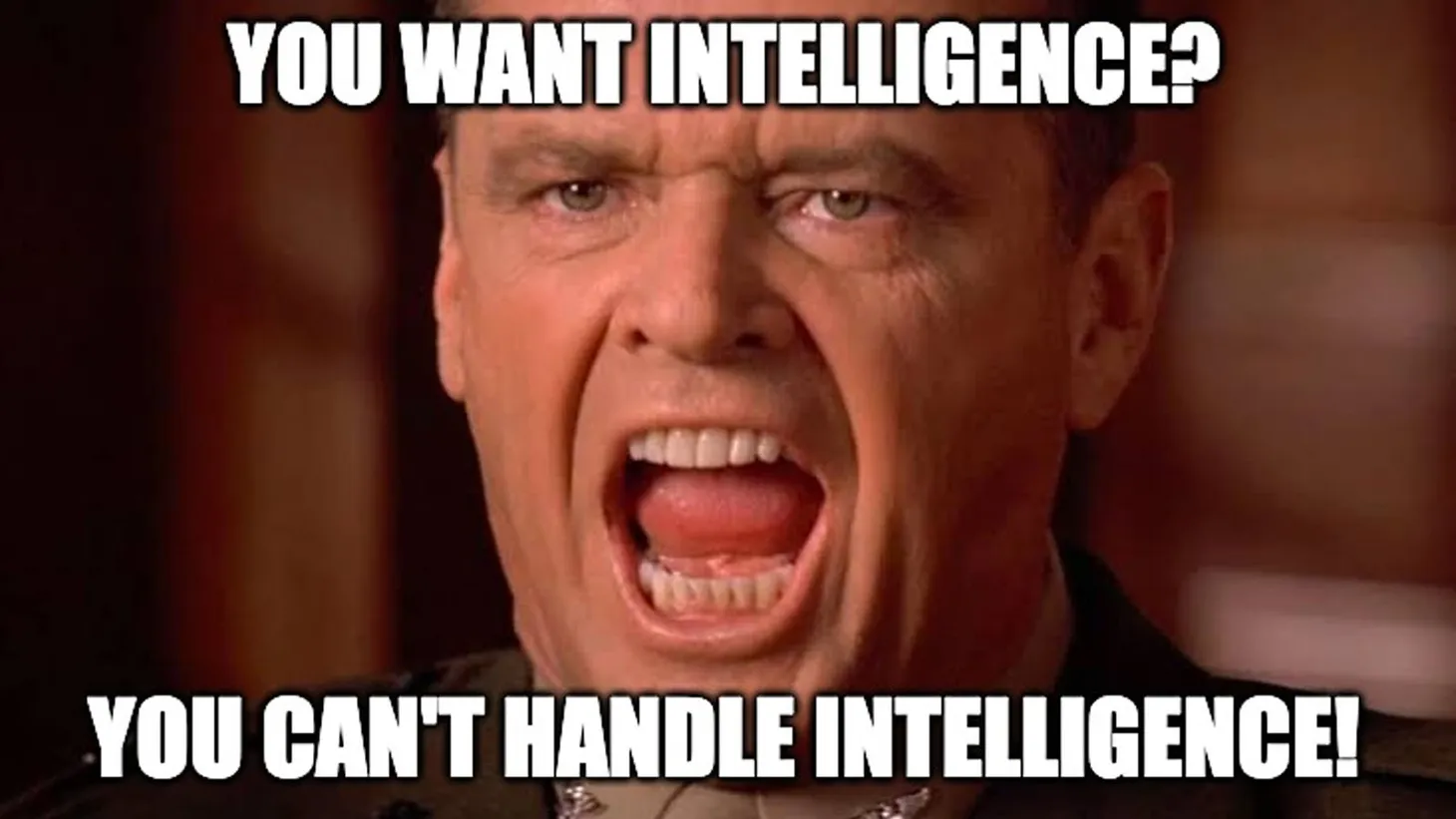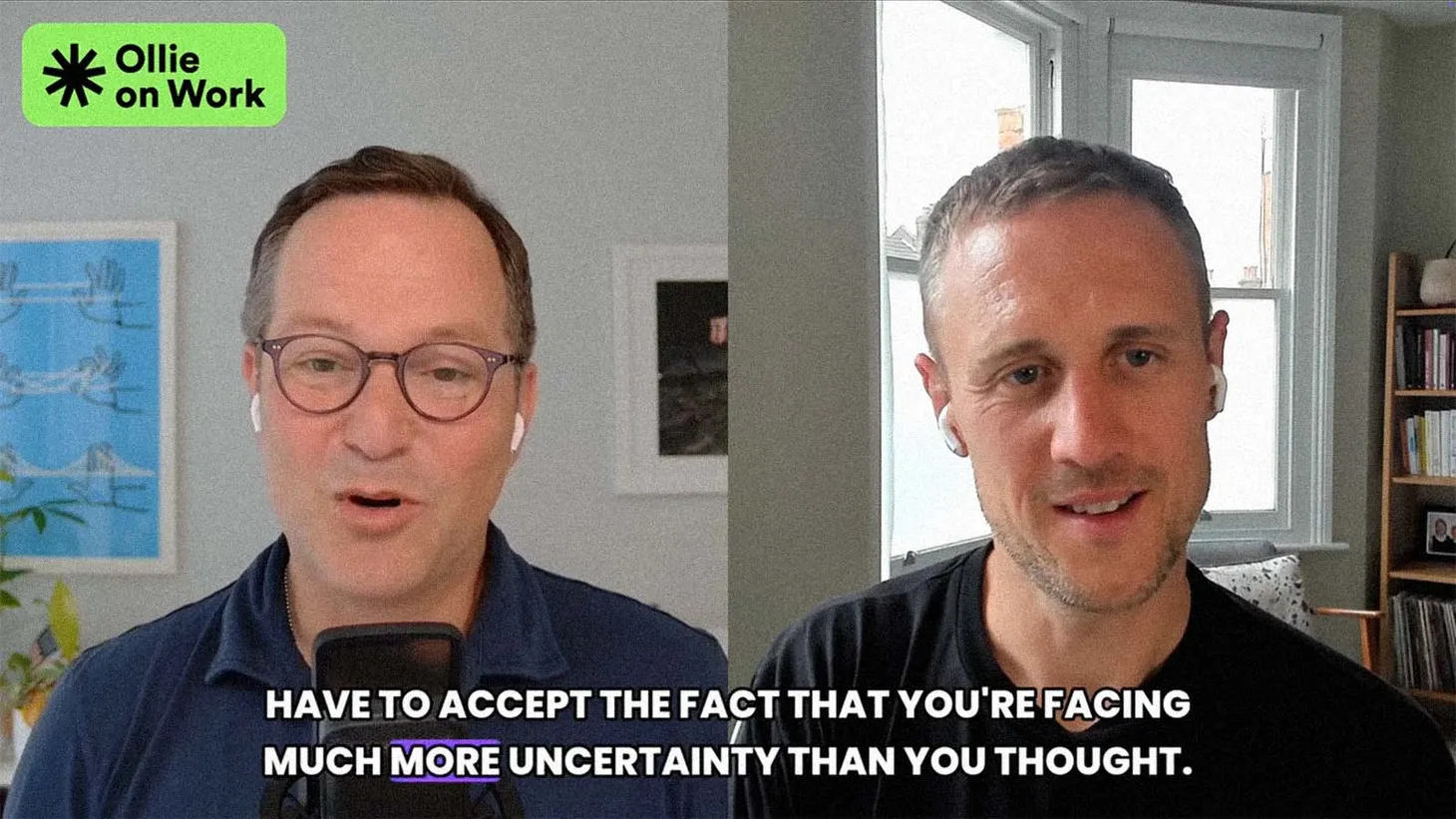Productivity and Bullshit
Technology creates more work. More work creates technology. But the way it does so is increasingly unclear.

You can listen to this article on Spotify, Apple Podcasts, and beyond.
In 1964, Marshall McLuhan identified a peculiar phenomenon. Telephones offered a new way to communicate directly and immediately. But their adoption led to an increase in indirect, asynchronous, written communication:
"It was the telephone paradoxically that sped the commercial adoption of the typewriter. The phrase, 'Send me a memo on that', repeated into millions of phones daily, helped to create the huge expansion of the typist function...
In no time at all, the telephone expanded the work to be done on the typewriter to huge dimensions. Pyramids of paperwork rise on the basis of a small telephone network inside a single business."
McLuhan sees the interaction between the telephone and the typewriter as an example of Parkinson's Law that "work expands... to fill the time available for its completion." He is correct, but the ultimate effect of this interaction introduces an even bigger paradox: The "pyramids of paperwork" kept more people busy doing things that were previously unnecessary, but at the same time, they also made individuals, and the economy as a whole, more productive.
In other words, work didn't simply "expand to fill the time available" — but people actually got more done with their limited time. There are two possible explanations for this.
The first is that inventions like the telephone increased productivity enough to offset all the new "waste" they created. This explanation assumes that phones contributed to the growth of so-called bullshit jobs, but they also saved so much time and on other fronts that the net effect was higher productivity. The phones also contributed to more intensive use of other resources, particularly land. Phones enabled many businesses to move into high-rise buildings and continue to do business despite losing direct touch with their suppliers and customers across the street (and, later, much farther away).
The second explanation for why productivity increased is that all the additional paperwork, tasks, and "bullshit" were integral to growth. Economic "noise" was not merely a cost of producing a "signal" but a critical component of production. Writing in 1964, McLuhan senses as much in his critique of Parkinson's Law:
"What Parkinson carefully hides from himself and his readers is simply the fact that in the area of information movement, the main "work to be done" is actually the movement of information. The mere interrelating of people by selected information is now the principal source of wealth in the electric age. In the preceding mechanical age, work had not been like that at all."
McLuhan understands that work in the "information age" is bound to look useless and wasteful — sending, processing, and storing an ever-growing amount of information. But he doesn't go far enough. McLuhan still assumed that the information being produced and processed had some direct value. And he was probably mostly right for his time.
But nowadays, it's harder to argue that most of the information we produce, transmit, and process is of economic value. We have become so good at producing noise that there's much more of it than actual signal. Our latest and greatest innovation, ChatGPT, is a great example of this process.
I spent the past few weeks working quite intensively with ChatGPT as part of the research for my book. A lot of the time, probably most of the time, the answers it generates are complete garbage. It's not that it doesn't know, but it totally makes stuff up.
Yesterday, for example, I asked it for examples of predictions about the telegraph's impact on cities. It replied with two quotes from Gustave Le Bon and Mark Twain. Both quotes were completely made up and didn't reflect the author's actual view on the subject.
This type of "hallucination" is a known limitation of large language models like ChatGPT. But more importantly, the process by which we get a lot more noise in exchange for a little more signal did not start with ChatGPT; the internet itself facilitated a similar process over the past three decades. Google gave us access to more information but also exposed us to plenty of useless information and forced us to sift through multiple results to find what we actually needed.
Compare this to the 1998 version of Yahoo!'s internet directory. Back then, if I clicked through the relevant categories all the way down to what I was looking for, I was likely to get the most reliable sources on my first try. But there's the rub, Yahoo! indexed a much smaller number of pages and catered to a much smaller number of user queries. In other words, a world with algorithmic search engines has much more noise and a little more signal. But the additional signal makes it all worthwhile. And, perhaps, the existence of so much noise reduces the actual cost of noise.
Let me explain. Having accurate information used to be the only thing that mattered. In some fields, this is still the case. But in many fields, information no longer needs to be factual. Instead, it needs to be entertaining or engaging. When a celebrity on Instagram tries to sell cosmetics, it doesn't matter whether she has any idea what she's talking about. From the economy's point of view, all that matters is whether her content helps generate more sales. And "sales" doesn't even have to involve any physical products — the mere act of viewing a video is an act of consumption: it is being tracked and monetized and contributes to GDP.
What I'm getting at is that it's becoming harder, impossible actually, to determine what is signal and what is noise. As the bible says, the only way to know "productivity" is by its fruits: If an action draws attention and/or generates sales, we may call it productive.
Outside of farms and factories, productivity was always tricky to measure. So-called Scientific Management was introduced to offices in the 1910s. Even then, managers and economists struggled to determine the link between what they could measure and actual economic output.
We have come a long way since the 1910s, and it's even harder to tell whether our actions are productive. But from a macro perspective, we know that it is. The economy is growing; our material well-being is increasing (putting aside, for now, the important matters of growing inequality and slowing growth).
In the 1950s, sociologist C. Wright Mills noted that most people were no longer doing anything meaningful at work:
"Each day men sell little pieces of themselves in order to try to buy them back each night and week end... with amusement, with love, with movies, with vicarious intimacy, they pull themselves into some sort of whole again, and now they are different men."
According to Mills, work has become what we do to afford the entertainment that makes work tolerable. Assuming he's right, things are much worse now. For many of us, work itself has become a form of entertainment: we either produce content for others or do things to keep us occupied and sedate while someone, somewhere, produces the stuff that makes it possible for us to get a salary and have access to the conveniences of modern life.
But Mills might be missing something. He assumes our work is meaningless and that there's something else we could do instead. He might be wrong on both counts. Let's start with the second one.
In his magisterial work on The Rise and Fall of American Growth, Robert Gordon argues that the period from 1870 to 1970 was unique:
American growth slowed down after 1970 not because inventors had lost their spark or were devoid of new ideas, but because the basic elements of a modern standard of living had by then already been achieved along so many dimensions, including food, clothing, housing, transportation, entertainment, communication, health, and working conditions.
The 1870–1970 century was unique: Many of these inventions could only happen once, and others reached natural limits. The transition from carrying water in and out to piped running water and waste removal could only happen once, as could the transition for women from the scrub board and clothes line to the automatic washing machine and dryer.
After 1970, innovation excelled in the categories of entertainment, information and communication technology: Television made its multiple transitions to color, cable, high-definition, flat screens, and streaming, and the mainframe computer was joined by the personal computer, the Internet and the World Wide Web, search engines, e-commerce, and smartphones and tablets.
If Gordon is correct, then it's inevitable that our work will be less "meaningful" than that of our parents and grandparents. Most of the "real" stuff has already been invented and produced, and we're destined to spend more time pushing into the realm of content and virtual goods. I don't agree with Gordon that we've reached the end of physical history. I have no doubt that our physical world will be transformed beyond recognition over the next 50 years. That said, Gordon is correct that currently, we are in a period of physical stagnation.
And even if we will indeed reshape the physical world, that reshaping might not depend on physical human labor to the extent that it did from 1870 to 1970. Most of us are likely "move information" rather than move actual bricks. To bring this back to Mills: he is probably wrong in assuming that doing "unreal" work is a choice. There is not enough of it left.
And now for Mills's second assumption: Is unreal work meaningless? Is there no use in producing all this content, paperwork, and noise?
It's becoming harder to answer this question. And that, in itself, is the answer. Increasingly, the innovations that will reshape the world will grow out of strange experiments that don't seem useful until they actually are. This is already happening in various fields. In industries as diverse as media to medicine, people throw things against the wall to see what sticks. Pure reason and detailed planning play a smaller role. Instead, systems are devised to produce noise in the hope that signal will emerge. This noise can be chemical combinations in an effort to develop a new drug or cultural combinations of music and movement in an attempt to develop a viral video.
You see where this is going. I have written about this in the past. The message here is more optimistic than it seems. Whatever you are working on is valuable. Whatever you are experimenting with contributes to a complex process that, somehow, pushes all of humanity one step further. Like ants walking in different directions in the hope of finding food, one of us will find it, and the network that connects us will enable all of us to benefit.
So walk in any direction you please, but don't stop walking. The treasure is there. Our biggest challenge as a society is how to divide it and ensure all of us can continue to experiment.
Have a wonderful weekend.
Best,

🎤 How will AI reshape our cities, companies, and careers? My speaking schedule for the summer and fall is filling up. Visit my speaker profile and get in touch to learn more.
Old/New by Dror Poleg Newsletter
Join the newsletter to receive the latest updates in your inbox.




